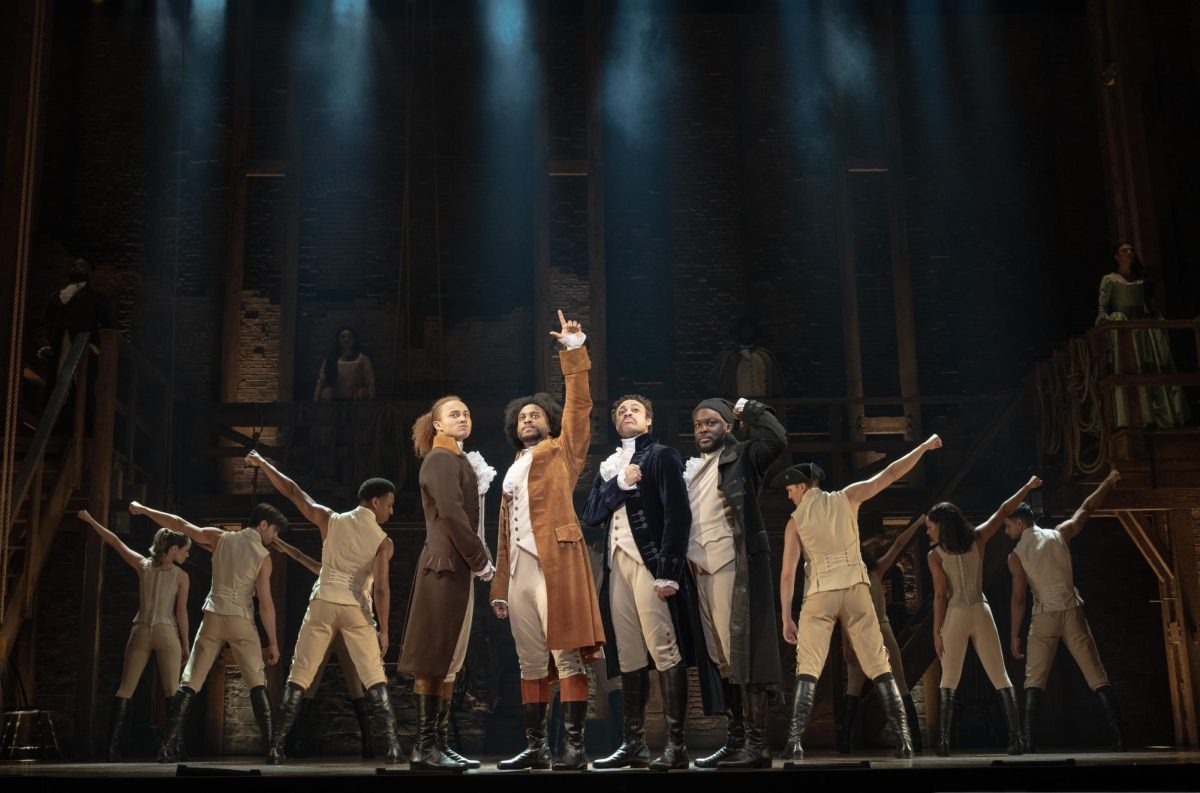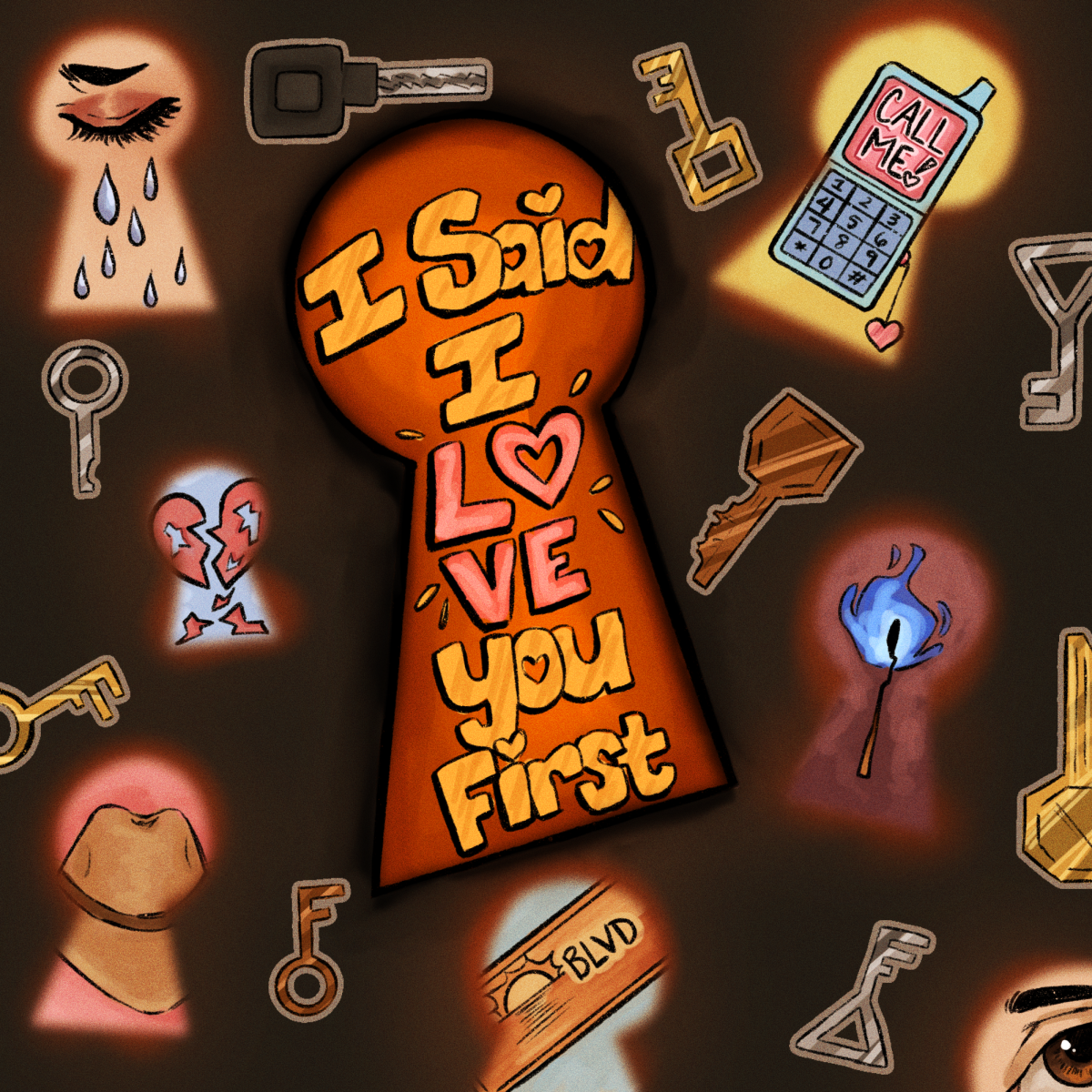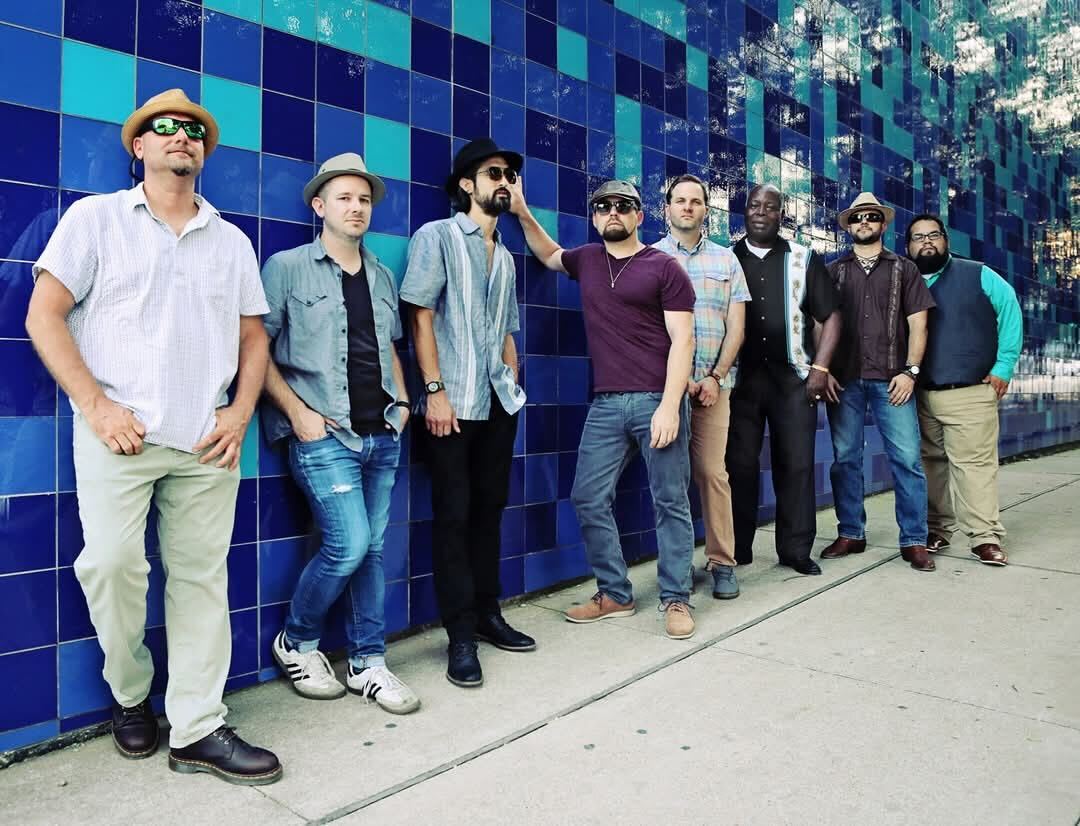Defining themselves as “the Michael Jordan of rock ‘n’ roll,” six-piece rabble-rousing rockers Foxy Shazam are distinct and distinguishable like their basketball counterpart. “We want to be the biggest band in the world,” wrote lead vocalist Eric Nally on the band’s website. “We want to stand for our generation.”
The basketball maestro’s influence on the group is unquestionable; for their self-titled 2010 album, the front cover featured Nally and three women, all sporting number 23 jerseys in homage to Jackson.
The group epitomizes showmanship in their live performances: Nally will sometimes hang upside-down over rafters, requesting cigarettes and lighters from the audience so that he can smoke momentarily, only to swallow the cigarettes shortly after; co-vocalist/trumpeter Alex Nauth sways back and forth, throwing his trumpet in the air and catching it with absolute grace; bassist Daisy Caplan, guitarist Loren Turner and pianist Sky White only add to the group’s cacophony, with White maniacally stomping on his keyboard while Turner and Caplan provide unrelenting rock riffs; and lastly, there is drummer Aaron McVeigh, the locomotive that keeps this rock ‘n’ roll train from having a catastrophic conclusion.
It’s a lot to take in, but it’s this larger-than-life persona, in addition to their always-evolving sound, that has contributed to the band’s gradual success. Returning with their fourth album, The Church of Rock and Roll, Foxy Shazam hopes to convert and baptize non-believers by proving one thing: they are the future of rock ‘n’ roll. Having started off as post-hardcore, the band has exchanged their discordant, heavy beginnings for something much more melodic and memorable.
The pearly gates of Shazam’s church opens with “Welcome to the Church of Rock and Roll,” an ode to arena rock anthems with its pounding drums and Queen-like bravado. “You’re all suckers, a flock of sheep, I’ll be your shepherd, follow me,” Nally confidently sings, the band’s extraordinary sound powerful and welcoming.
“I Like It,” the first single from the album, oozes with sex appeal. Any doubt of that can be put to rest by the song’s chorus: “That’s the biggest black ass I’ve ever seen,” Nally sings, his declaration backed by the resounding cry, “and I like it!”
“Wasted Feelings” shows Nally channeling his inner Prince, his falsetto effortless and sensual. Turner explodes towards the end with a powerful guitar solo, before doing a guitar-vocalist duet that is reminiscent of Guns N’ Roses’ Slash and Axl Rose.
The Church of Rock and Roll is a celebration: A celebration of change, progress and success, all of which is evident in comparison to their past releases. Church is never dull; each song serves a purpose to the album, revealing the band’s growth as musicians. Past albums such as The Flamingo Trigger and Introducing could never find a balance, resulting in albums that had no real resonance. Church shows the band keeping the good and getting rid of the bad, without losing their mystique.
Sure, there are not any of those definitive half-scream, half-yelp screeches that first introduced us to Nally, or the finger-pounding keys that proved that White is one of rock’s underrated pianists, but the growth of the band is apparent. In changing their sound, Foxy Shazam have finally found a medium in which they can still be as raw as they want, while creating infectiously catchy tunes.




















